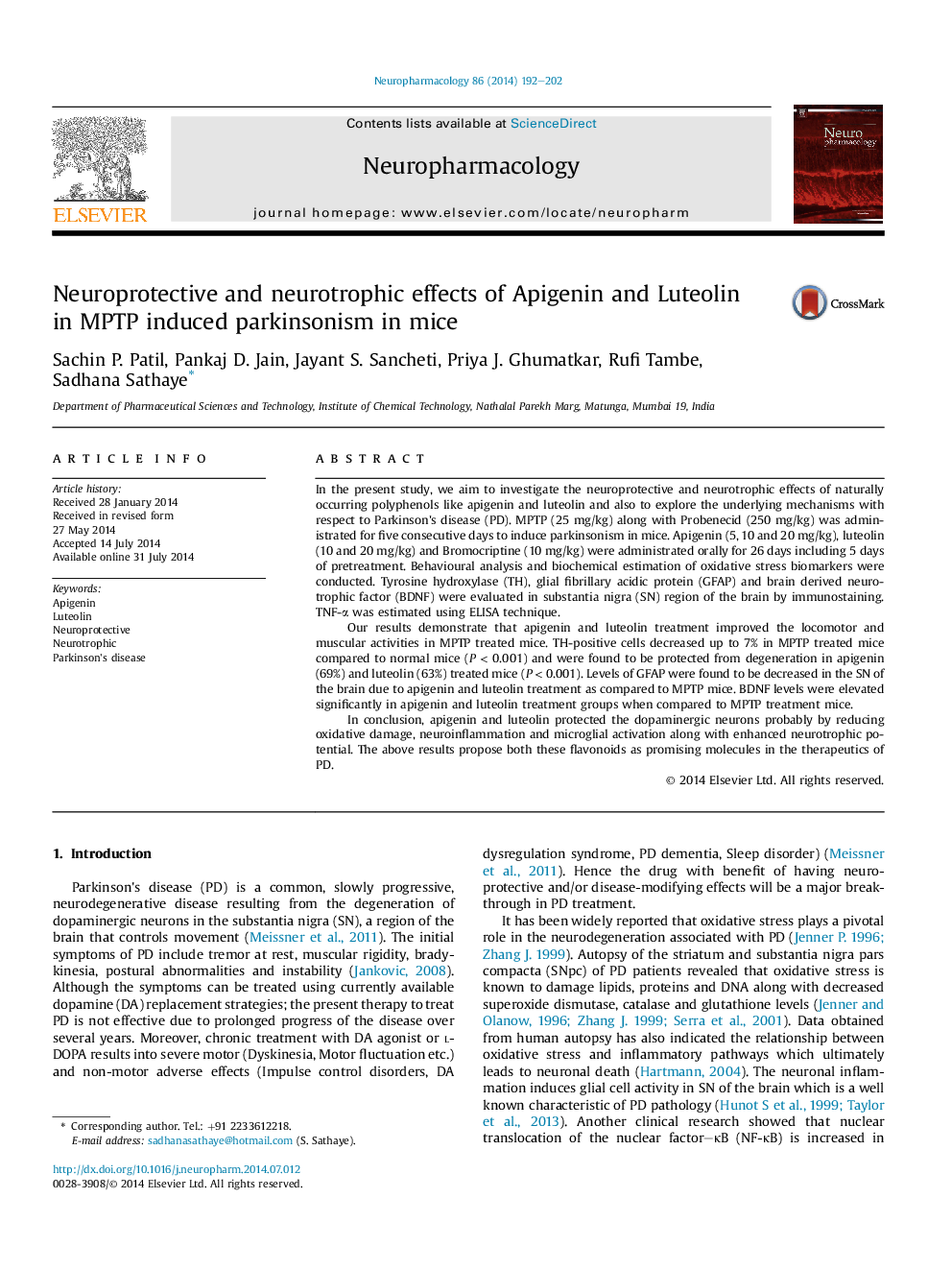| کد مقاله | کد نشریه | سال انتشار | مقاله انگلیسی | نسخه تمام متن |
|---|---|---|---|---|
| 5814191 | 1556628 | 2014 | 11 صفحه PDF | دانلود رایگان |

- Apigenin, luteolin were evaluated for neuroprotective and neurotrophic potential.
- MPTP induced parkinsonism mouse model was used to evaluate the same.
- Neuroprotection was attributed to the antioxidant and anti-inflammatory effects.
- Increased BDNF levels in the SNpc illustrated the neurotrophic potential.
- Apigenin and luteolin can be promising molecules in the treatment of parkinsonism.
In the present study, we aim to investigate the neuroprotective and neurotrophic effects of naturally occurring polyphenols like apigenin and luteolin and also to explore the underlying mechanisms with respect to Parkinson's disease (PD). MPTP (25 mg/kg) along with Probenecid (250 mg/kg) was administrated for five consecutive days to induce parkinsonism in mice. Apigenin (5, 10 and 20 mg/kg), luteolin (10 and 20 mg/kg) and Bromocriptine (10 mg/kg) were administrated orally for 26 days including 5 days of pretreatment. Behavioural analysis and biochemical estimation of oxidative stress biomarkers were conducted. Tyrosine hydroxylase (TH), glial fibrillary acidic protein (GFAP) and brain derived neurotrophic factor (BDNF) were evaluated in substantia nigra (SN) region of the brain by immunostaining. TNF-α was estimated using ELISA technique.Our results demonstrate that apigenin and luteolin treatment improved the locomotor and muscular activities in MPTP treated mice. TH-positive cells decreased up to 7% in MPTP treated mice compared to normal mice (P < 0.001) and were found to be protected from degeneration in apigenin (69%) and luteolin (63%) treated mice (P < 0.001). Levels of GFAP were found to be decreased in the SN of the brain due to apigenin and luteolin treatment as compared to MPTP mice. BDNF levels were elevated significantly in apigenin and luteolin treatment groups when compared to MPTP treatment mice.In conclusion, apigenin and luteolin protected the dopaminergic neurons probably by reducing oxidative damage, neuroinflammation and microglial activation along with enhanced neurotrophic potential. The above results propose both these flavonoids as promising molecules in the therapeutics of PD.
Journal: Neuropharmacology - Volume 86, November 2014, Pages 192-202